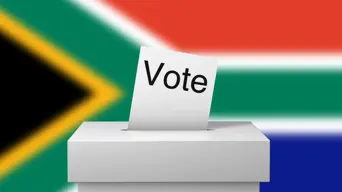Women in SA politics: 'We may be outnumbered, but never out-muscled' – De Lille
Colleen Makhubele, leader of the South African Rainbow Alliance, Professor Amanda Gouws, and the GOOD party's Patricia De Lille engage in a dialogue about the role of women in politics.

Picture: © inkdrop/123rf.com
Lester Kiewit interviews Colleen Makhubele, leader of SA Rainbow Alliance, Prof Amanda Gouws, distinguished professor in political science at Stellenbosch University and Patricia De Lille, GOOD party leader.
Listen below.
Looking back on South Africa's inaugural democratic election in 1994, it represented a significant milestone filled with numerous historic moments.
For the first time, all South Africans had the opportunity to select their future leaders through the ballot.
The electoral landscape was enriched with the presence of diverse new political parties representing various segments of society.
One notable entity was the Women’s Rights Peace Party, led by Nina Romm and the late Constance Khoza.
While Romm’s movement may have dissolved, the ongoing issues surrounding women’s rights and gender-based violence underscore the continued necessity for advocacy in these areas.
Fast forward to this year's election, scheduled for 29 May, where the South African Rainbow Alliance is poised to participate with a female leader at its helm.
Colleen Makhubele, formerly removed from her position as Johannesburg speaker, heads this amalgamation of smaller parties including the NFP, the Independent Civic Movement, AARM, and various churches.
Despite being a newcomer to the local political arena, they have successfully navigated some of the Electoral Commission's requirements by gathering the necessary signatures for their new party.
GOOD party's Patricia De Lille has a varied political history, having been affiliated with four major parties, serving as mayor, MP, and national minister.
Her departure from the DA in 2018 led to the formation of the GOOD movement, a party dedicated to advancing a fairer and more democratic South Africa.
Unfortunately, as highlighted by De Lille and Makhubele, the reality for women in South African politics is one of isolation.
They note that while male counterparts socialise in 'boys clubs' after Parliamentary hearings, women are compelled to rush home to attend to their responsibilities.
De Lille emphasises that addressing this issue should commence within households, where responsibilities ought to be shared equally, thus affording both adults the same opportunities to advance their careers.
Despite the solitude experienced by women, De Lille asserts that they will never be overpowered, even if they remain outnumbered.
Furthermore, although there has been some progress in terms of women's representation, a notable absence of women in leadership positions persists.
"It can become lonely, but I do think that we have made progress in terms of women representation."
- Patricia De Lille, GOOD party
"You just have to get used to being outnumbered, but not out-muscled...I will never allow them to muscle me out."
- Patricia De Lille, GOOD party
Makhubele echoes this sentiment, highlighting that women in politics often face repercussions or are labelled as overly ambitious when expressing their opinions and ideas.
Consequently, many women are deterred from speaking out due to fear, being compelled to conceal their aspirations.
"Women are so used to just sacrificing for free."
- Colleen Makhubele, SA Rainbow Alliance
While the current composition of Parliament consists of 45% women, Gouws observes that many of them are appointed through ANC quotas, which fails to truly empower women as they remain loyal to the male figures within the party.
Scroll up to the audio player to listen to the interview.